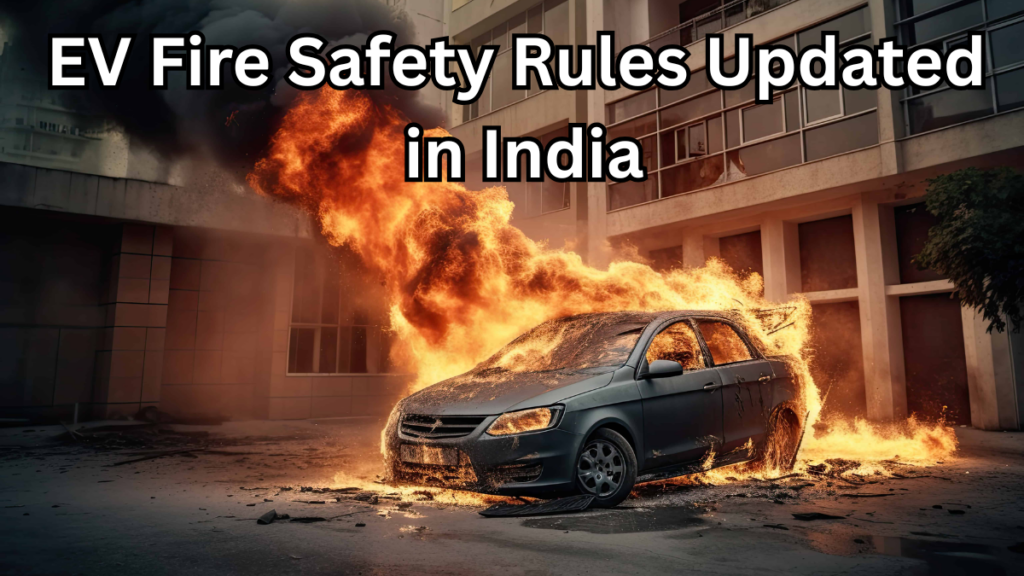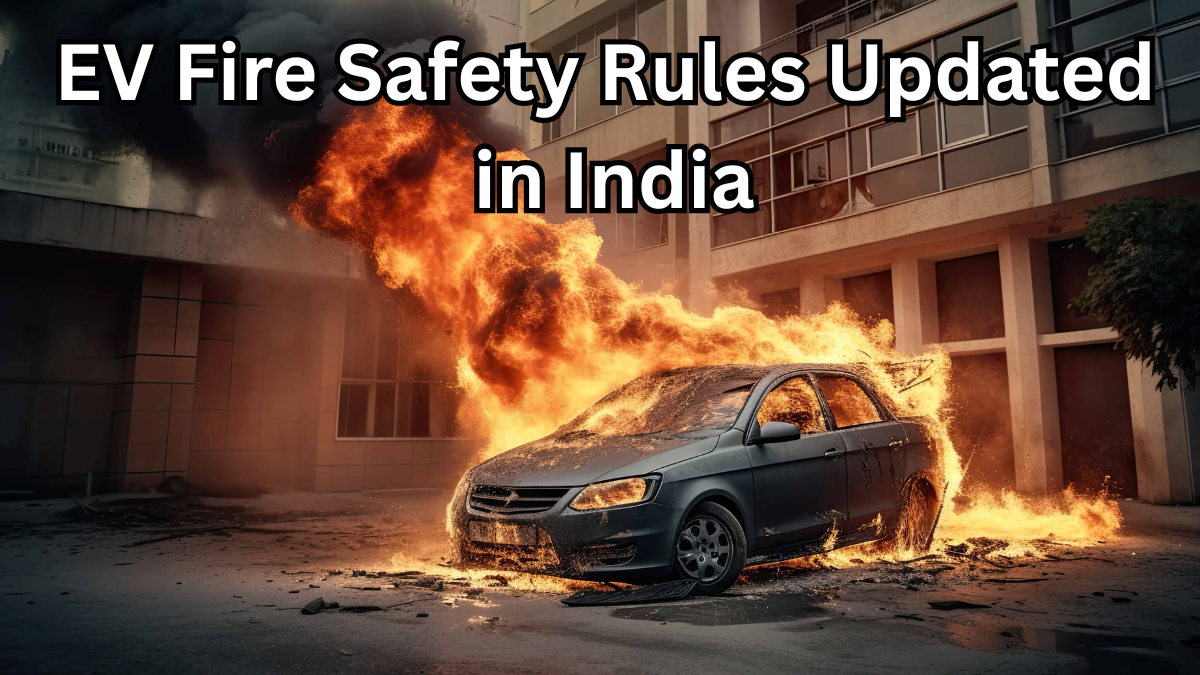Electric vehicles (EVs) are rapidly becoming the preferred mode of transport across India. However, with rising EV adoption, there’s also been a surge in fire-related incidents, prompting the government to take action. The result? A comprehensive update to the EV fire safety rules 2025, with a sharper focus on battery regulation in India.
These changes aim to boost safety, ensure accountability, and foster public confidence in electric mobility.

Why the Safety Rules Were Updated
Several EV fire incidents in the past few years highlighted the urgent need for stronger safety regulations. The revised framework is a direct response to:
-
Increasing fire risks from substandard battery packs
-
The lack of uniform safety protocols among EV makers
-
Consumer concerns about EV safety in high-temperature zones
Key Updates Under EV Fire Safety Rules 2025
Here’s what has changed under the latest regulatory update.
Major Regulation Changes at a Glance
| Area of Impact | New Rule/Requirement |
|---|---|
| Battery Safety Standards | Mandatory AIS-156 and AIS-038 Rev 2 certification for all EV batteries |
| Thermal Runaway Protection | Integration of thermal cut-off and temperature control systems |
| Waterproofing Standards | Mandatory IP67 rating for battery packs to resist water and dust ingress |
| Battery Management System | Real-time monitoring and fault detection via onboard BMS software |
| OEM Reporting | OEMs must report battery failures to the Ministry within 24 hours |
| Recall Protocols | Streamlined and time-bound recall process for faulty or fire-prone vehicles |
These measures aim to standardize EV quality across manufacturers and reduce the risk of thermal incidents.
What EV Owners Should Do Now
If you’re already driving an EV or planning to buy one in 2025, here are practical steps you should take:
-
Verify Certification: Ensure your EV battery complies with AIS-156 standards.
-
Stick to Authorized Services: Avoid local battery replacements or unauthorized software changes.
-
Update Software: Regularly check for BMS software updates provided by your manufacturer.
-
Be Battery Aware: Pay attention to heating issues or strange odors—these could be warning signs.
Impact on EV Manufacturers and Startups
The new rules present both a challenge and an opportunity for EV manufacturers.
What EV Makers Need to Do
-
Upgrade battery designs to meet global safety benchmarks
-
Enhance in-house testing protocols and quality control
-
Offer longer warranty and after-sales battery support
-
Develop mechanisms to report and respond to battery failures swiftly
By complying with the enhanced battery regulation in India, automakers can not only avoid penalties but also gain consumer trust.
Best Practices for EV Users
To keep your vehicle safe, here are a few everyday tips:
-
Avoid overcharging or leaving your EV plugged in overnight
-
Park your vehicle in shaded or ventilated areas during extreme heat
-
Always use manufacturer-approved chargers
-
Don’t ignore dashboard alerts related to the battery or thermal system
How These Rules Fit into India’s EV Vision
The updated EV fire safety rules 2025 are part of India’s broader plan to establish a secure and scalable EV ecosystem. As EV infrastructure expands, these safety measures will be crucial to:
-
Reducing fire-related EV accidents
-
Increasing long-term consumer adoption
-
Encouraging foreign investment in India’s EV sector
FAQs
What is AIS-156 and why is it important?
AIS-156 is a battery safety standard that outlines protocols for testing electric vehicle battery packs, focusing on thermal, mechanical, and water-related safety parameters.
Do the new EV fire safety rules 2025 apply to my current vehicle?
Initially, they apply to all new EVs manufactured or sold from April 2025 onward. However, older EVs may be encouraged or required to adopt some safety upgrades, depending on manufacturer guidance.
How will the battery regulation in India affect EV prices?
Yes, EV prices might see a slight increase due to improved safety technologies. However, these enhancements significantly reduce the risk of costly accidents and repairs in the long run.
What should I do if I suspect a battery issue in my EV?
Immediately contact your service provider or manufacturer. Do not try to repair or replace battery components yourself, as it could void the warranty or lead to further risks.
Click here to learn more
